
Paul B. Yu, MD, PhD
Principal Investigator
Director, Cardiovascular Research Center, Massachusetts General Hospital
Associate Professor of Medicine, Harvard Medical School
Physician in the Division of Cardiovascular Medicine, Brigham and Women’s Hospital
Dr. Yu completed his AB in Philosophy and a BS in Biological Sciences at Stanford University, MD and PhD (Immunology) degrees at Duke University, completed Internal Medicine residency at UCSF, clinical and research fellowships in Cardiovascular Disease at Massachusetts General Hospital (MGH), and is board certified in Cardiovascular Medicine. Following a postdoctoral fellowship in the laboratory of Dr. Kenneth Bloch, Dr. Yu established his independent laboratory at MGH, and then moved to BWH in 2011 to join a collaborative basic and translational research effort in pulmonary arterial hypertension. Dr. Yu’s laboratory studies the function of bone morphogenetic protein (BMP) signaling in development, and in the cardiovascular and musculoskeletal system. The main focus of his laboratory’s work is to discern how BMP/TGF-β signaling achieves spatio-temporal and functional specificity and modulates the tissue-specific consequences of inflammation and injury, and how these signals may contribute to cardiopulmonary, systemic vascular, and musculoskeletal development and disease. His clinical interests including pulmonary vascular disease, and cardiovascular rheumatology.

Ying Zhong, PhD
Postdoctoral Fellow, Harvard Medical School
Dr. Zhong received her PhD degree from the Department of Biochemistry and Molecular Biology, Peking Union Medical College & Tsinghua University in January 2016. In hergraduate study in the laboratory of Dr. Chengyu Jiang, she verified the key role of C-X-C motif chemokine 10 (CXCL-10) and its downstream signaling pathways (PI3K/AKT and JNK/MAPK) in influenza virus-induced acute lung injury (ALI). She also demonstrated that monoclonal antibody against CXCL-10 can significantly ameliorate influenza virus-induced ALI in murine models. In another study, she characterized pathogenic microRNAs in the Ebola virus glycoprotein-induced vascular endothelial lesion.
In 2016, Dr. Zhong moved to Boston in 2016 and pursued postdoctoral study with Dr. Jesse David Roberts Jr. in the Cardiovascular Research Center at MGH. She identified how TGF-β regulates lysyl oxidase (LOX) expression at a transcriptional level via canonical Smad2/3-dependent mechanisms and promoter stimulation. Through a collaboration project with Dr. Howard Chen, they determined that this LOX stimulation increases aldehyde levels in the lung in a manner that can be detected using an aldehyde-binding molecular probe. Furthermore, in a human fetal lung fibroblast cell line (IMR-90) and primary mouse pup peripheral lung fibroblasts, she determined that physiologic levels of IL-1β rapidly decrease the expression of α 1-subunit of soluble guanylyl cyclase at a transcriptional level viaIL-1β/TAK1/IKK/NF-κB signaling. Dr. Zhong demonstrated the in vivo relevance of the results using a transgenic newborn mouse model offered by Dr. Kristina Bry, in which active IL-1β was conditionally expressed in lung epithelial cells. This study detailed a new mechanism of cGMP signaling regulation in newborn lung injury.
To broaden her knowledge of the role of TGF-β family members in pulmonary vascular remodeling and diseases, Dr. Zhong joined Dr. Paul Yu’s laboratory in 2021. She is interested in testing the efficacy of the recombinant traps of TGF-β family ligands in treating pulmonary arterial hypertension (PAH). Also, she is currently investigating novel cellular and molecular mechanisms and therapeutic targets of PAH using single-cell RNA sequencing technology and the explanted lungs from patients with PAH undergoing lung transplantation. She hopes her work in Dr. Paul Yu’s lab will gain the potential to transform and contribute to unmet clinical needs.

Luca Troncone, PhD
Instructor, Harvard Medical School
Dr. Troncone works in cell signaling and protein engineering with a focus on therapeutic antibodies development and gene therapy. He trained at the historic University Federico II of Naples (Italy), under the mentorship of Professor Di Donato, who trained with the Nobel Prize laureate Stanford Moore.
During his pre- and post-graduate preparation, he focused on the expression and biochemical characterization of different protein systems and bacterial biofilm for bioenvironmental applications and drug delivery.
After moving to the United States, Dr. Troncone trained with prominent professors, such as Dr. Del Monte. He led important studies on demonstrating the premature aging of cardiac tissue in patients suffering from Alzheimer’s disease as it occurs in the brain tissue; on the characterization of the system ephrin A1/EphA2 which plays a crucial role during all phases of the embryonic development and, in adults, is involved in tissue and organ homeostasis and pathogenesis, in particular, tumor development and metastasis formation; and on the role of a new microRNAs directly implicated in TGFb signaling regulation, especially during Cardiac Fibrosis development.
To augment his knowledge on various roles of TGFb family receptors members during development and in pathological conditions like Pulmonary Arterial Hypertension or Fibrodysplasia Ossificans Progressiva, he joined Dr. Paul Yu’s lab here at Brigham and Women’s Hospital in 2017.
Dr. Troncone’s proudest accomplishment is to be leading an exciting and life-changing project on the generation of molecular agonists against Type I and II receptors to modulate specific signaling and understanding subsequent phenotypes.
Luca is also a talented comedia’del arte practioner and performs frequently in the greater Boston area.
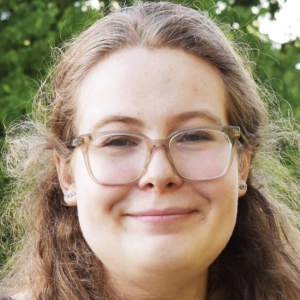
Lillian Worst
Research Assistant
Lily graduated Sigma Xi from Wellesley College in 2021 with a Bachelor of Science degree in biochemistry. She completed a thesis in organic chemistry studying green solvents in peptide synthesis and previously worked in drug development. She is a debater, an outdoor sports enthusiast, sailor, skier, and lover of all-things animal related.
Lily’s research within the Yu lab focuses on biomarkers of pulmonary hypertension. She also studies acitvin neofunction in Fibrodysplasia Ossificans Progressiva.

Ana Zeghibe
Research Assistant
Ana graduated Phi Beta Kappa and Sigma Xi from Wellesley College in 2022, where she majored in biology. She completed an undergraduate thesis in the bioethics of molecular pharming and previously studied face and arm transplantation at Brigham and Women’s Hospital in the plastic surgery research division. Ana also has research experience in organic chemistry and public health. She is interested in disability justice and is a neurodiversity advocate, a practicing illustrator, and a former organic chemistry and public speaking tutor at Wellesley.
In the Yu lab, Ana researchers the effects of the TGF-beta superfamily on osteogenic differentiation and BMP signaling, working predominantly in both cellular biology and bioinformatics.
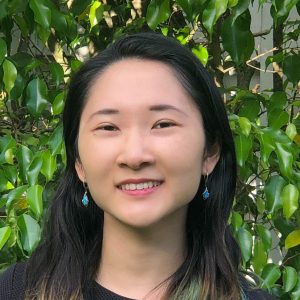
Elizabeth Shin
Research Assistant
Elizabeth (Ellie) graduated from Swarthmore College in 2022 with a Bachelor of Arts in Neuroscience. At Swarthmore, Ellie researched feelings of ambivalence in gambling studies, racial biases in pain perception, and neuropharmacological effects on fear response. She also interned at New York University, where she studied Alzheimer’s disease, and has previously worked at Johnson & Johnson on vaccine development. Ellie was an avid member of her fencing and archery teams in college and was a peer-advisor in the Swarthmore Career Center.
Her research with the Yu Lab is focused on bispecific markers of pulmonary hypertension and the BMP signaling.
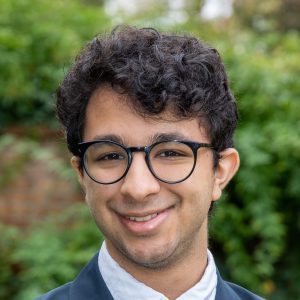
Shreyas Rajesh
Research Assistant
Shreyas graduated with honors from Williams College in 2022, where he double-majored in chemistry and English. He completed his undergraduate thesis in organometallic chemistry and has previous research experience examining the ecological effects of global warming, hospital acquired infections in developing countries, and efficient syntheses of biological dyes. Shreyas spent his junior year at Exeter College, Oxford University and worked with the UK’s National Health Service at John Radcliffe Hospital. He is an enthusiastic squash player and previously led Williams College’s Writing Center.
At the Yu lab, Shreyas studies cardiovascular remodeling in pulmonary hypertension and BMP signaling.

Taylor Covington
Research Assistant (former)
Taylor graduated from Boston College in 2020 with a Bachelor of Science degree in Biology and a Bachelor of Arts degree in English. During her time at BC, Taylor participated in a project on functional genomics while also completing a humanities fellowship sponsored by the English department. She was also a varsity swimmer (D1) and is a barre-class enthusiast.
Since joining Yu Lab in 2020, Taylor has exhibited a special interest in clinical and translational research, engaging primarily in in-vivo and drug efficacy studies within the lab.
Taylor formally left the Yu lab in 2022 to pursue a PhD in biological and biomedical science at Harvard Medical School, but she continues to train current lab members and assist with larger projects.
Alumni
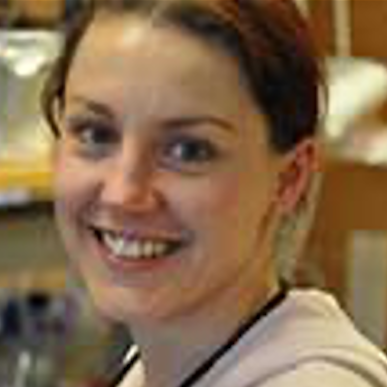
Jana Bagarova, PhD

Matthias Derwall, MD
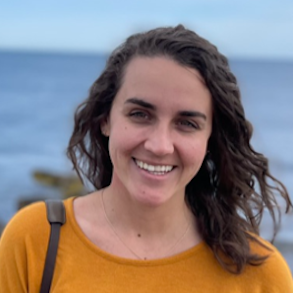
Teresa Dinter
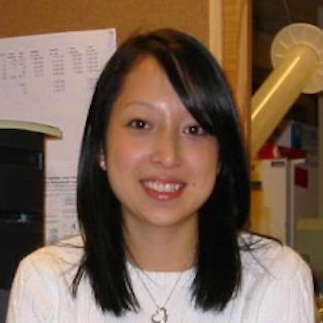
Carol Lai, PhD

Agustin Mohedas
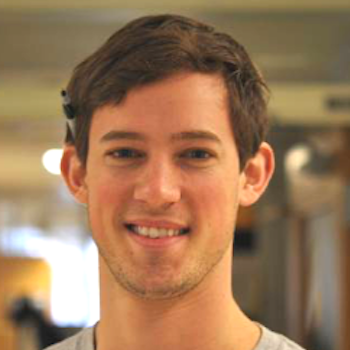
Sam Paskin-Flerlage
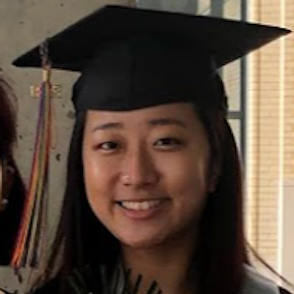
Hyeon Ju Song

Peiran ‘Brian’ Yang, PhD

Stephanie Kim

Anna-Millia

Zachary Auger
